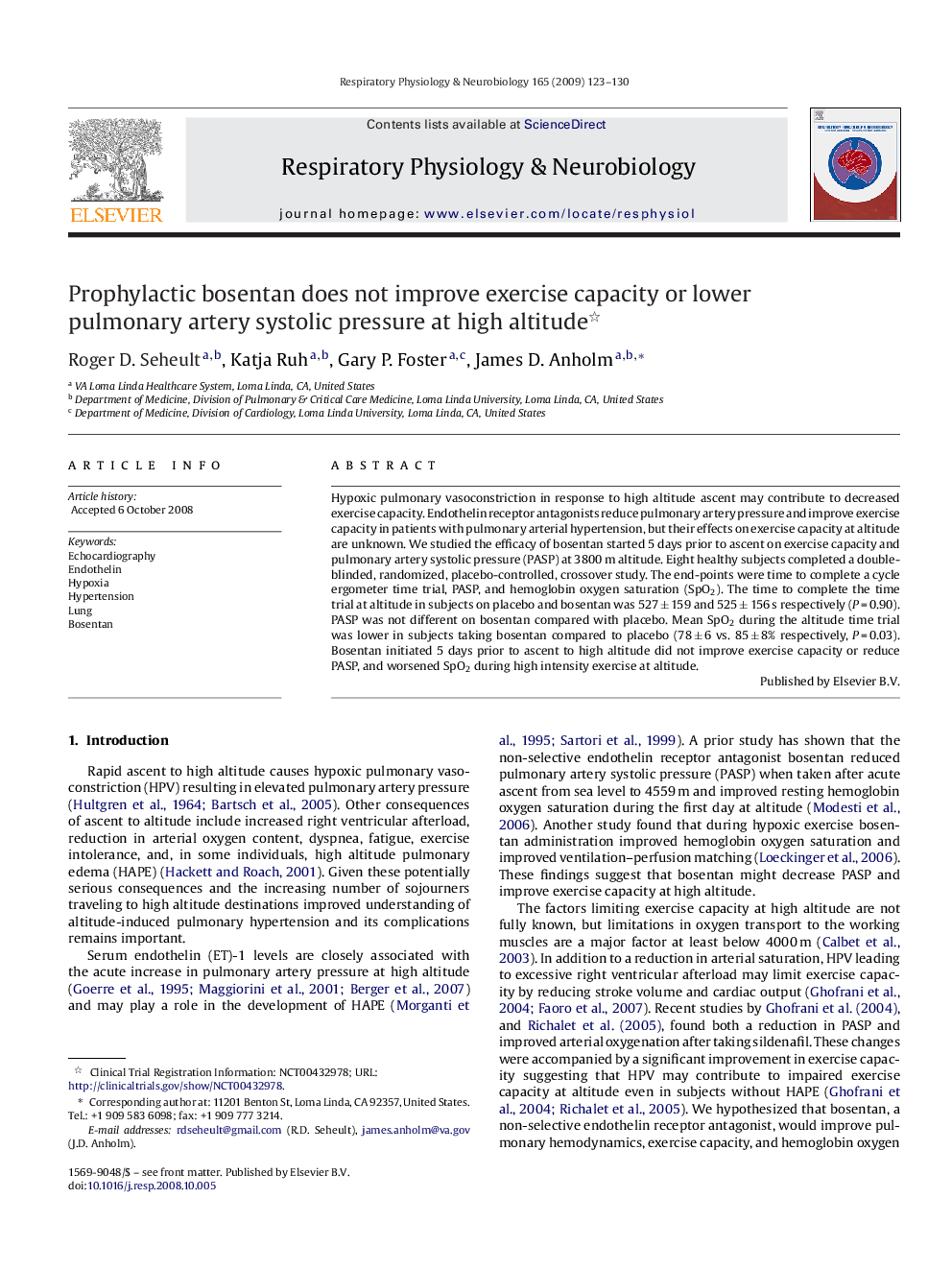| Article ID | Journal | Published Year | Pages | File Type |
|---|---|---|---|---|
| 2848020 | Respiratory Physiology & Neurobiology | 2009 | 8 Pages |
Hypoxic pulmonary vasoconstriction in response to high altitude ascent may contribute to decreased exercise capacity. Endothelin receptor antagonists reduce pulmonary artery pressure and improve exercise capacity in patients with pulmonary arterial hypertension, but their effects on exercise capacity at altitude are unknown. We studied the efficacy of bosentan started 5 days prior to ascent on exercise capacity and pulmonary artery systolic pressure (PASP) at 3800 m altitude. Eight healthy subjects completed a double-blinded, randomized, placebo-controlled, crossover study. The end-points were time to complete a cycle ergometer time trial, PASP, and hemoglobin oxygen saturation (SpO2). The time to complete the time trial at altitude in subjects on placebo and bosentan was 527 ± 159 and 525 ± 156 s respectively (P = 0.90). PASP was not different on bosentan compared with placebo. Mean SpO2 during the altitude time trial was lower in subjects taking bosentan compared to placebo (78 ± 6 vs. 85 ± 8% respectively, P = 0.03). Bosentan initiated 5 days prior to ascent to high altitude did not improve exercise capacity or reduce PASP, and worsened SpO2 during high intensity exercise at altitude.
